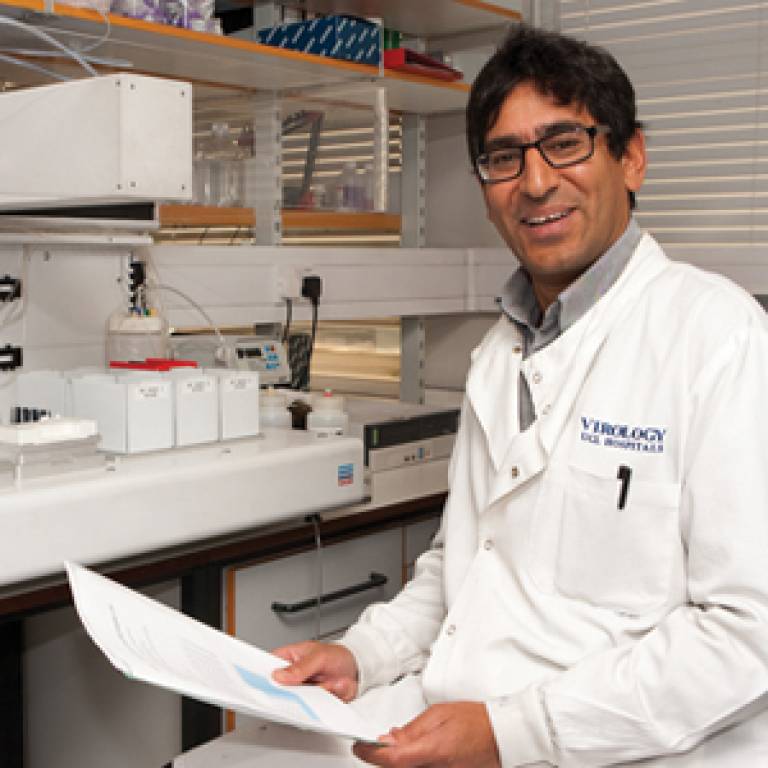Joint-UCL health research centres receive £165 million
18 August 2011
Medical research centres run by UCL in partnership with three NHS trusts have received preliminary government funding worth a total of approximately £165 million over five years.

This forms part of a national award of £800 million from the National Institute for Health Research (NIHR) to leading NHS Trusts and academic institutions across the country. The funding, which is to be spread over a five-year period, will mean UCL can continue pursuing its groundbreaking translational research agenda - turning innovations in basic science into treatments and therapies that have a direct effect on patients.
Three centres with UCL as academic partner were initially established in 2007 with five-year funding from the NIHR. These included the UCLH/UCL Comprehensive Biomedical Research Centre, as well as two Specialist Biomedical Research Centres - one run jointly by the UCL Institute of Ophthalmology and Moorfields NHS Foundation Trust, the other by the UCL Institute of Child Health and Great Ormond Street Hospital for Children NHS Trust.
In addition to these three centres, a further £4.5 million has now been awarded to enable UCLH and UCL to set up a separate biomedical research unit specialising in dementia, bringing the total of NIHR centres and units in the UCL family to four.
Professor Malcolm Grant, UCL President and Provost, said: "The outcome of this grant process really is a fantastic success for UCL and our partner hospitals. I pay tribute to all those staff who were involved in the bids and who have made these initiatives the successes that they are. The fact that we are a partner in four centres and units which will receive funding is testament to the strength of our links with UCLH, Moorfields and Great Ormond Street, and our ability to effectively combine medical research with clinical practice.
"The centres have been a great success over the past five years, instilling a real commitment to translational research within the academic community. In the next five to ten years we are confident this success will continue, allowing us to achieve our ambition of being the epicentre for medical research in the UK and Europe."
Professor Deenan Pillay, Director of the BRC, said: "I can't express how pleased we are here at the BRC. It means we can continue our plans to develop some of the most cutting-edge experimental medicine. The BRC is a powerful partnership between leading clinicians and scientists, and we want to build on our partnership working. This will bring optimal cutting edge, research led care to patients."
The centres invest in staff posts, equipment, facilities and training, to enable researchers to translate fundamental biomedical research into clinical research that benefits patients. Some example research projects include research into gene therapy for blood cancers and diseases such as haemophilia B, identification of genetic causes of cancer and methods of prevention of MRSA.
UCLB Business PLC (UCLB), UCL's technology transfer office has contributed to and supported and will continue to support these centres in their translational strategy to turn basic science into market ready therapies, diagnostics and medical devices.
Image: Professor Deenan Pillay
Links:
 Close
Close

